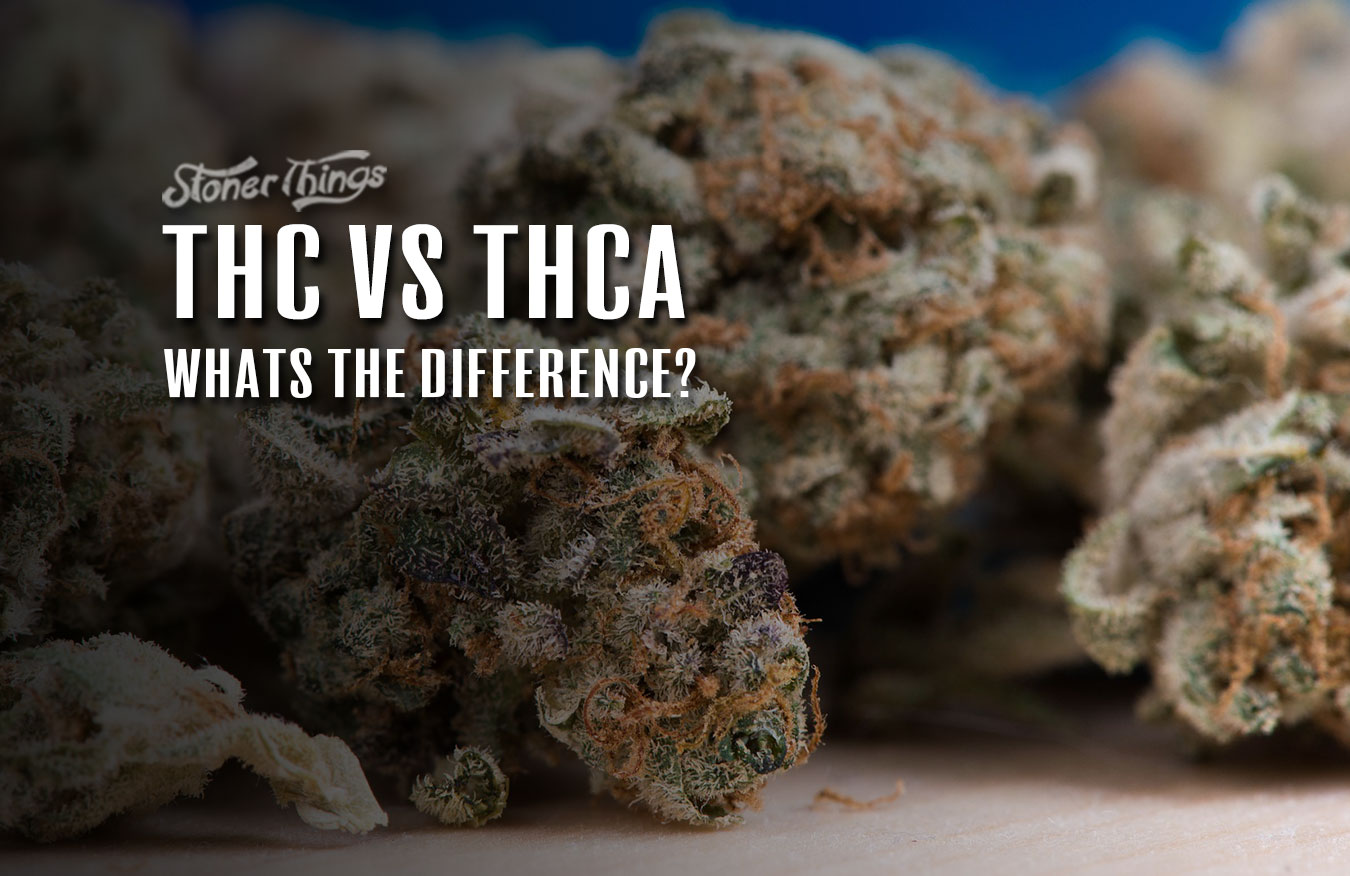Welcome to the fascinating world of cannabis, where a diverse range of compounds interacts with our bodies in unique ways. Among these compounds, THC (tetrahydrocannabinol) and THCA (tetrahydrocannabinolic acid) take center stage. In this article, we’ll take you on a journey to understand the nuances that set THC and THCA apart, dive into the methods for converting THCA into THC, and shed light on the intriguing relationship between THCA and cannabis consumption.
THC vs. THCA: Unraveling Their Unique Traits
THC (Tetrahydrocannabinol)
THC is the rockstar of cannabis components, known for its euphoric effects. It’s made up of a molecular structure consisting of 21 carbon atoms, 30 hydrogen atoms, and 2 oxygen atoms. This chemical makeup allows THC to interact with the endocannabinoid system, a complex network of receptors that regulate various bodily functions. This is where the debate of “THC vs THCA” kicks off.
THCA (Tetrahydrocannabinolic Acid)
On the flip side, we have THCA, the precursor to THC, found in raw and freshly harvested cannabis plants. Structurally, THCA is similar to THC but stands out due to the presence of an additional carboxyl group (COOH), which makes it non-psychoactive. Ingesting raw cannabis with THCA won’t give you the familiar THC-induced “high,” highlighting the unique advantages of THCA.
Decarboxylation: Transforming THCA into THC The magical process of turning THCA into THC is known as decarboxylation. It’s a transformation triggered by heat, light, or even the passage of time. During this process, the carboxyl group bids adieu to THCA, leading to the conversion of the acidic compound into its psychoactive counterpart, THC.
Calculating THC from THCA
Interested in the science behind “calculating THC from THCA”? It’s like a molecular puzzle. After decarboxylation, THC and THCA aren’t identical twins anymore, thanks to the carboxyl group’s departure. This slight difference in molecular weight between the two compounds helps us estimate the THC content produced during this process.
Psychoactivity and Effects: THC’s High vs. THCA’s Potential
THC’s Mind-Altering Effects
THC’s mind-bending effects have made it a star attraction, responsible for a range of cognitive experiences. By interacting with cannabinoid receptors in the brain and central nervous system, THC triggers biochemical reactions that result in altered perception, euphoria, relaxation, and sometimes, feelings of anxiety or paranoia. The effects of THC are influenced by factors like dosage, individual tolerance, and the specific cannabis strain used.
THCA’s Non-Psychoactive Perks
In contrast, consuming THCA won’t immediately send you on a psychedelic journey. However, research suggests that THCA has its own set of benefits. Studies highlight its potential as an anti-inflammatory, pain-relieving agent, and protector of neurons. This opens doors for addressing conditions such as chronic pain, neurodegenerative disorders, and even certain types of cancers.
Medicinal Potential: THC vs THCA THC’s Therapeutic Role
THC has firmly established its place in the medical world. Medical cannabis rich in THC is prescribed to alleviate symptoms associated with various conditions, including chronic pain, multiple sclerosis, and nausea caused by chemotherapy. However, its psychoactive effects may limit its suitability for certain individuals, especially those sensitive to its euphoric properties.
THCA’s Emerging Medical Frontiers
THCA’s non-psychoactive nature presents exciting possibilities in the medical realm. Initial investigations suggest that THCA could be a potent anti-inflammatory and pain-relieving agent. Its potential to protect brain cells from damage has garnered attention, spurring research into treatments for conditions like Parkinson’s and Alzheimer’s.
Navigating THC and THCA Choices: Strains and Consumption
THC-Dominant Strains
If you’re after the euphoria associated with THC, you might lean towards THC-dominant strains. These strains are carefully curated to have higher concentrations of THC, offering experiences that range from mild relaxation to intense euphoria. Remember, though, responsible THC consumption is key, as higher doses can lead to unwelcome effects.
THCA-Rich Products
For those seeking the potential health benefits of cannabis without the mind-altering effects, THCA-rich products are an appealing choice. These formulations retain the non-psychoactive essence of THCA, making them suitable for individuals looking to avoid THC-induced euphoria. Options like raw cannabis juicing and THCA tinctures offer pathways to harness these benefits.
Conclusion
Navigating the THC and THCA Journey In the dynamic world of cannabis, THC and THCA paint a captivating contrast. THC’s legacy is firmly etched in history, while THCA’s untapped potential keeps the intrigue alive. The transformation from THCA to THC unlocks a treasure trove of attributes, offering a personalized journey for cannabis enthusiasts. As ongoing research uncovers the intricacies of these compounds, individuals stand at the crossroads of choices, whether for recreational enjoyment or therapeutic exploration.
Disclaimer: The information presented here is for informational purposes only and should not be considered medical advice. It’s essential to consult a medical professional before making any decisions related to cannabis use.













